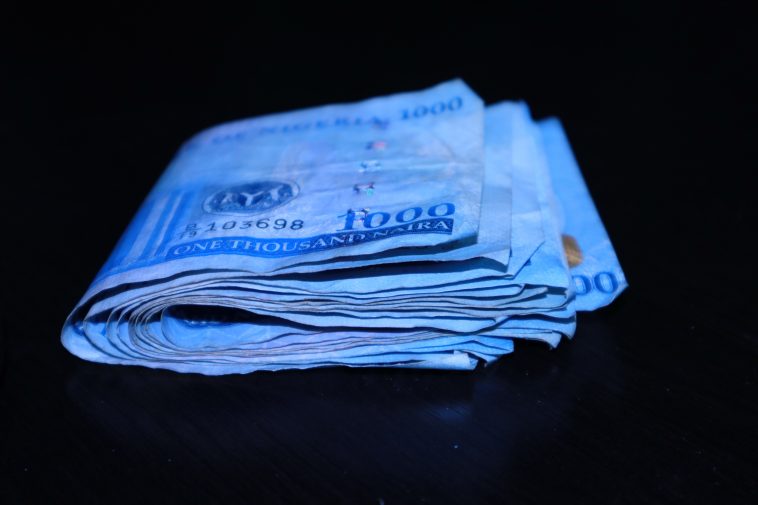In 2023, Africa faced a significant financial challenge, with three currencies ranking among the five poorest performers globally. The continent’s weakest currencies were the Nigerian naira, Angola’s kwanza, and Malawi’s kwacha. Notably, the Nigerian naira experienced a steep decline, only surpassed by the Lebanese pound and the Argentine peso, making it the most depreciated currency in Africa for that year.
In 2023, the value of Nigerian banknotes decreased by 55% compared to the US dollar. As a result, to maintain their revenue in dollar terms at a constant level, companies functioning in Nigeria had to increase their income in naira by approximately 2.2 times.
In light of the prevalent trend among Nigerian and other African startups to secure funding in US dollars, several strategic approaches are being increasingly adopted in Nigeria and similarly impacted nations. These strategies include:
– Adapting expenses to local contexts,
– Focusing more on markets that present lower foreign exchange risks,
– Shifting business models to generate higher foreign currency revenues, and
– Seeking investment in the local currency.
Below are some illustrations of these methods.
Adapting expenses to local contexts,
Paystack, a payment platform acquired by Stripe, operates in Nigeria, Kenya, Ghana, and South Africa. It is beta testing in Ivory Coast, Egypt, and Rwanda. However, a significant portion, if not most, of its revenue still comes from Nigeria.
As the Nigerian naira’s value significantly dropped, Paystack faced challenges managing its foreign expenses, including its engineering center in Dubai and payroll in Europe. This financial strain led to the company laying off its international employees in November as part of a strategy to “localize costs,” as stated by Paystack CEO Shola Akinlade.
Focusing more on markets that present lower foreign exchange risks,
Expanding into various African markets is usually considered a proactive strategy, mainly because most markets have limited scale. However, such expansion, especially across African countries, can serve as a protective measure, particularly against depreciating naira. The markets in Francophone Africa are desirable due to their link to the euro, offering a stable alternative that is often not given enough attention.
In the past few months, two companies, Termini and Smile ID, which predominantly earn their income in Nigerian naira, have focused on extending their reach into Francophone Africa. Termii, a customer engagement and messaging platform, is moving into Ivory Coast. Smile ID, a company specializing in identity verification and digital KYC, is expanding into Ivory Coast and Senegal.
Shifting business models to generate higher foreign currency revenues,
IrokoTV, a Nigerian subscription video-on-demand (SVOD) service focused initially on African viewers, has redirected its attention towards audiences in the United States and other international markets. This strategic shift was highlighted by Iroko TV’s CEO Jason Njoku in October when he pointed out that a significant 89% of the platform’s revenue in the first nine months of 2023 came from outside Nigeria. This change in focus aligns with the financial impact of Naira devaluations.
In Africa, obtaining funds in local currencies can be difficult. However, the trend is shifting towards more opportunities for local currency investments, especially in debt instruments.
Take the case of Tizeti, a Nigerian provider of high-speed wireless internet, which successfully obtained debt financing in the local currency (naira) in December. This funding was provided by Chapel Hill Denham’s Nigeria Infrastructure Debt Fund
Additionally, the CEO of Tizeti has cautioned against the risks of securing debt in US dollars while the company’s revenue is in naira.
Investment opportunities in local currency, especially in debt instruments, are becoming more prevalent. Take the example of Tizeti, a Nigerian high-speed wireless internet provider, who obtained an unspecified amount of debt financing in naira from Chapel Hill Denham’s Nigeria Infrastructure Debt Fund, a local investment bank in December.
However, challenges persist. Following its worst performance since Nigeria’s transition to democracy in 1999, the naira is anticipated to depreciate further in 2024.
As the naira continues to weaken, there’s an expected rise in the urgency among founders and investors to adapt. This includes localizing foreign expenses, expanding markets to diversify revenue, shifting business strategies towards hard currency, and opting for fundraising in local currency.
In Nigeria, tough conditions are expected to continue until a sentiment turnaround.





